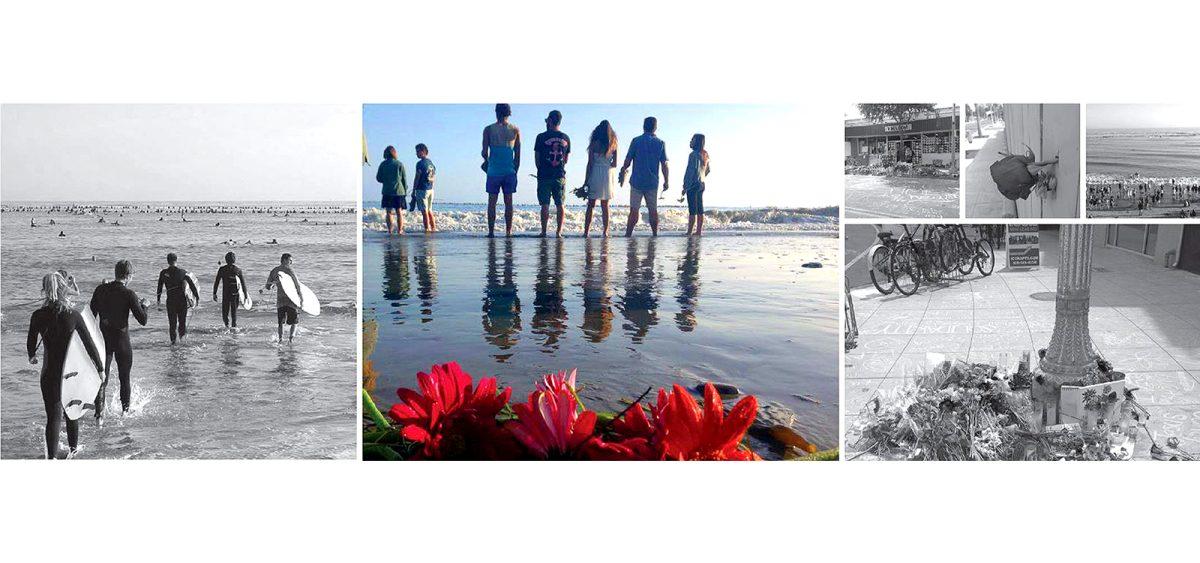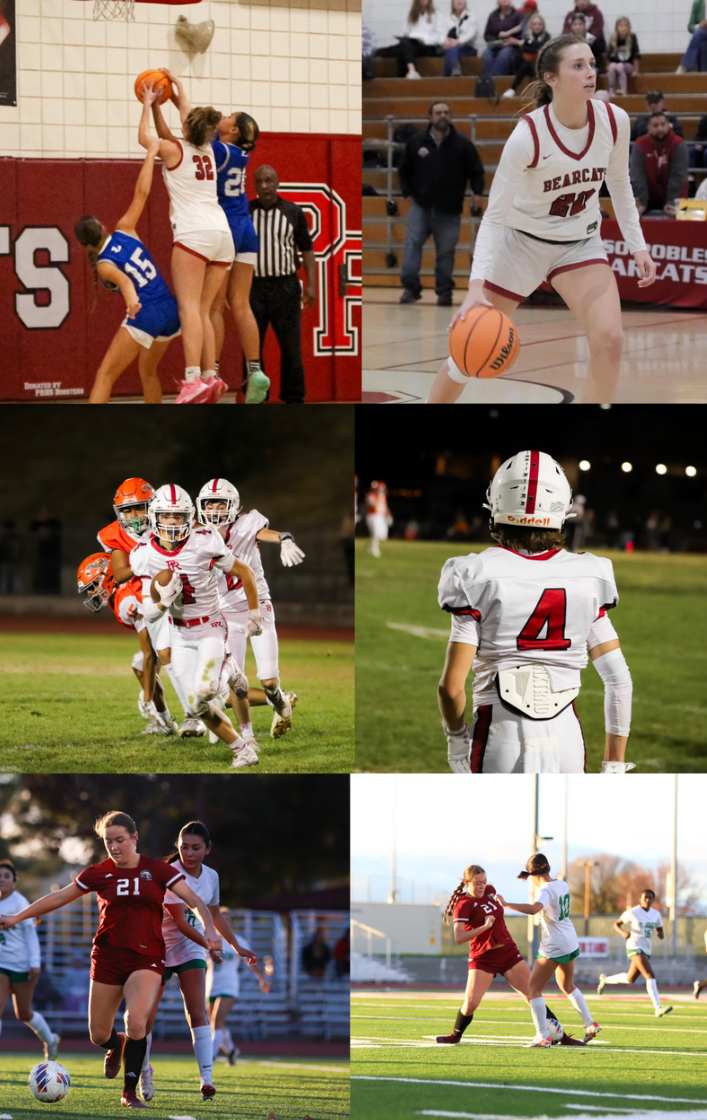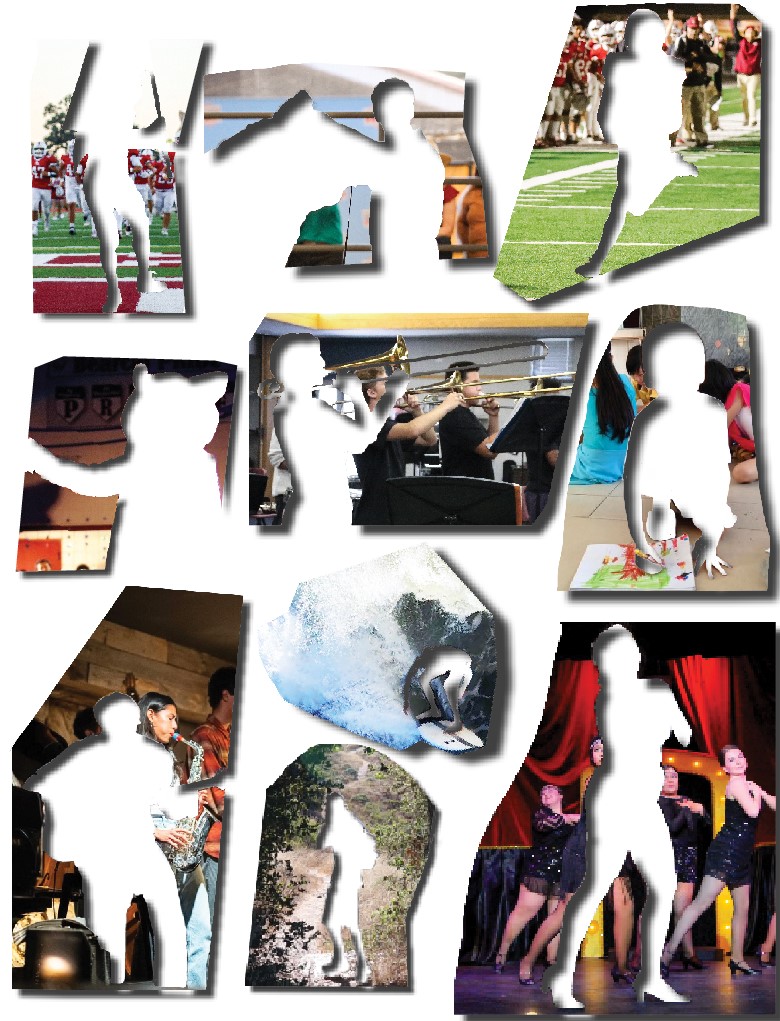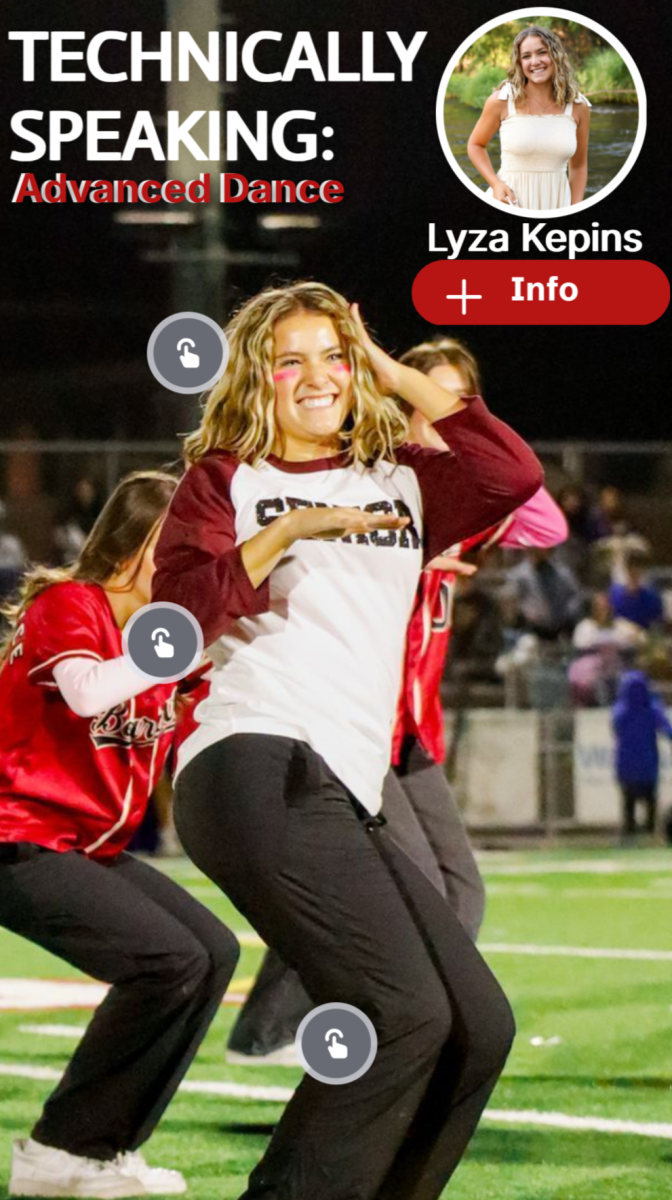Isla Vista Attacks make ‘all things different now’
by Sarah Wilson, UCSB / PRHS ’13 | May 2014
When I returned to UC Santa Barbara on Tuesday, May 27 from my weekend home in Paso Robles, a cold cover of gray clouds hung over campus. It seemed that even the weather wanted to mourn. Campus was still. The usual crowds of students heading to class were gone. I was met with silence.
Four days prior, a buzz from my phone alerted me of a 411 text message: “At this time, there is no further threat. Everyone is encouraged to stay indoors.” One-hundred thirty miles away in Paso, I wondered at the words on my iPhone screen, thinking only that some sort of mayhem must be happening either at UCSB or in the neighboring town of Isla Vista. These text alerts were nothing new to me, I’d received plenty over the course of my freshman year at UCSB—Isla Vista is known for its party culture and tendency for trouble.
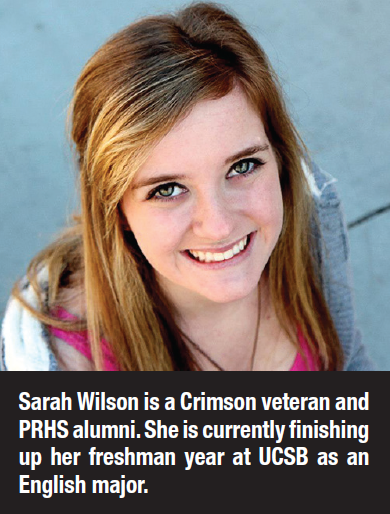 This was different. Within the hour, I would receive worried texts from friends asking if I was okay, asking if I’d heard what had happened: someone had set out on a shooting rampage in Isla Vista. Seven people were dead. For days I remained in quiet shock. One moment I’d been stressing over the impending deadline of my philosophy paper, and the next thing I knew, I found myself fearing whether my friends had been shot. This didn’t seem real. What do you do when the Facebook posts turn into frantic messages, letting your family know you are still alive? What do you do when the world turns upside down?
This was different. Within the hour, I would receive worried texts from friends asking if I was okay, asking if I’d heard what had happened: someone had set out on a shooting rampage in Isla Vista. Seven people were dead. For days I remained in quiet shock. One moment I’d been stressing over the impending deadline of my philosophy paper, and the next thing I knew, I found myself fearing whether my friends had been shot. This didn’t seem real. What do you do when the Facebook posts turn into frantic messages, letting your family know you are still alive? What do you do when the world turns upside down?
So much changed over the course of that weekend, and by the end of it many of us at UCSB and in IV felt lost and hurt. Twelve crime scenes now stained the town I loved, the places I knew: the IV Deli across the street from my favorite restaurant is now the location of a death; the 7-11 my friends and I frequent when we get bored of the dorm vending machines wears bullet holes; the Capri Apartments, where I thought about living next year, now the old refuge of a madman. I wasn’t there when the beach air filled with the crack of gunshots. I wasn’t there when the people of my community ran for their lives through bike-infested streets I knew all too well. I wasn’t there when Elliot Rodger murdered six of my fellow classmates and harmed 13 others. I wasn’t there. But I got the phone calls, I read the posts, and I cried from the deep ache of having my home and peers wantonly attacked.
This is my school, my home, and seeing such pain brought to a place and to people I love is so vastly different from any sensationalized version spewing forth from television screens. Six Gauchos are dead; our school is shaken. This is real.
The murders continue giving rise to more challenges than we anticipated. News reporters determinedly press their bulky cameras and microphones in the faces of grieving students, eager to publicize the pain; members of the Westboro Baptist Church protest in the streets of Isla Vista after tweeting, “#GodSentTheShooter” on the day of the victims’ memorial; angry students, parents, and citizens post about misogyny, feminism, rape culture, race issues, violence against women, and gun rights, blaming the deaths on these issues and demanding for change. This chaos from all corners of the world bombards the small square mile of Isla Vista, and all the while we try to mourn our immense loss in peace we cannot seem to find.
But this is not a news special. This is not an opportunity for ratings or views or likes. This is not a chance to protest or throw signs in the air declaring we deserved this. This is not about misogyny, feminism, rape, race, violence, or guns. This is not a political debate. This is a tragedy.
While the world catches flashing scenes of yellow crime tape and bullet holes in windows on the news, the inhabitants of Isla Vista are left broken and despairing. After the news crews go home and the world loses interest, we still live on the streets of our fallen friends. This is not just some new topic for your social media page, and in the end, blaming men or therapists or politicians ameliorates nothing. Let this be a time to remember those we have lost, and to gain some perspective. I never thought my home would fall victim to such an event. No one ever does, I suppose.
But what the cameras and Facebook posts don’t show is the incredible outpouring of love and supportthat residents of this unique community have shown for one another in such a trying time. Students are supporting each other like never before and coming together in solidarity when it is most needed. Candles, flowers, photos, and encouraging chalk messages cover the streets and sidewalks; candlelight vigils have formed here as well as at the other UC campuses; and on Tuesday, May 27, declared “A Day of Mourning and Reflection,” over 20,000 people came together in blue and gold for a memorial in honor of the deceased.
An indescribable feeling of alliance surrounds this little town by the sea. Suddenly petty differences are forgotten, and unconditional camaraderie takes its place. Things are different now. We will continue to feel the devastation long after the news crews grow jaded and turn away—they have that luxury. But we have been scarred; our mentalstate of being has been altered. There is no walking away for us, no changing the channel. The pain is immeasurable, but it is transient; the will to stand in spite of our pain is infinitely more vast.
So we will stand together in compassion and togetherness as a community, and we will not forget May 23, 2014. Three days after the shooting, I read a message of hope: “A solid challenge will bring forth your finest abilities.” We, of UCSB and Isla Vista, have been presented with a solid challenge—the challenge to overcome an act of hatred on our home. How do we recover from such heartbreak? How do we heal?
The events of May 23 have confirmed our finest, most salient ability: solidarity. Instead of wallowing in abjection, we as a community, as a family, have risen up as one to show the world something truly newsworthy: the unity and hope of thousands in the wake of actions meant to tear us down. From the ashes of our greatest tragedy, we are united like never before.
May the pain in our hearts be an impetus for strength in the days to come. Never have I been so proud to be a Gaucho.

